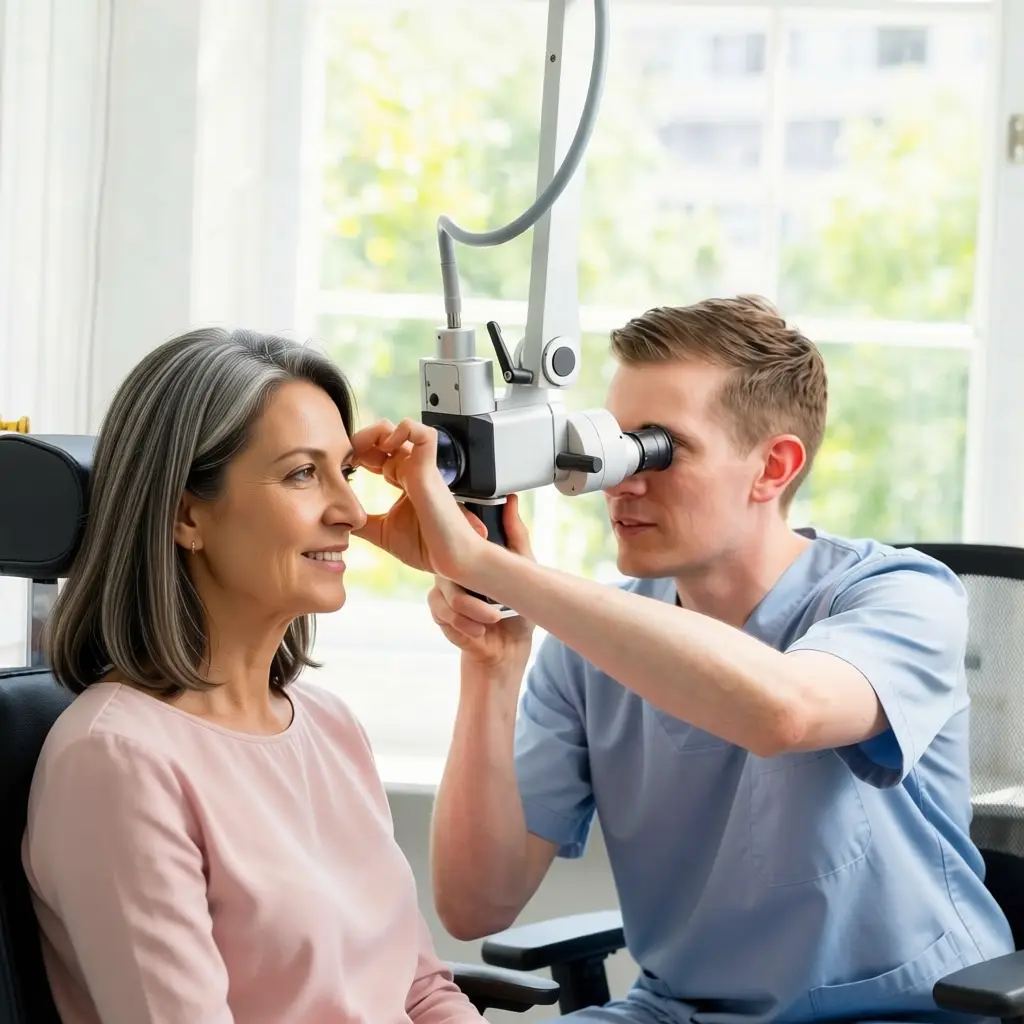A Clear Guide to Vestibular Migraine
Strategic Relief for Vestibular Migraine
Dizzy spells with or without headaches? Vestibular migraine affects many and is highly manageable, not a harbinger of serious disease. At Harley AVM, our team delivers targeted control. Rush to urgent AVM care for sudden, severe headache, vision loss, weakness, confusion, or seizure-like symptoms; these concerning symptoms demand immediate action.
Comprehensive Care for Hearing, Vertigo & Balance
Comprehensive Care for Hearing, Vertigo & Balance
Migraine-Related Balance Dysfunction
An Overview of Vestibular Migraine
Vestibular migraine is a neurological balance disorder where migraine activity affects the systems that control balance and spatial orientation. People may experience episodes of dizziness, rocking, swaying, or vertigo, with or without a typical migraine headache. Symptoms often fluctuate and can appear suddenly, making the condition difficult to recognise.
Episodes arise from altered brain processing of sensory signals rather than inner-ear damage alone. Visual motion, stress, hormonal changes, poor sleep, or certain foods can act as triggers. Because hearing tests and scans are often normal, vestibular migraine is frequently misdiagnosed. Accurate identification relies on recognising symptom patterns and migraine features to guide appropriate, targeted management.
Pinpointing the Cause
Diagnosing Vestibular Migraine
When to Get Checked
You should get assessed if episodes of dizziness, rocking, or vertigo recur without a clear inner-ear trigger, especially if they are linked to headaches, light sensitivity, visual disturbance, nausea, or a personal or family history of migraine. Symptoms that fluctuate or worsen with stress, sleep disruption, or hormonal change also warrant audiovestibular review.
You should seek urgent assessment if balance symptoms appear suddenly with severe headache, new neurological symptoms, weakness, speech difficulty, visual loss, or persistent vomiting.

How We Assess Vestibular Migraine
At Harley Audiovestibular Clinic, our evaluation starts with a detailed history from a senior audiovestibular expert, detailing vertigo episodes, headache patterns, triggers, and sensory sensitivities to match vestibular migraine criteria. We commit to unhurried time with our consultants, crafting a comprehensive view of your symptoms centred on your narrative.
We proceed with vestibular function tests, audiometry, and targeted questionnaires, if indicated, while excluding other causes precisely. Our senior clinicians review findings together for precise insights. This differentiated pathway empowers us to deliver personalised strategies that stabilise episodes and elevate daily comfort effectively. At Harley AVM, we focus on sustainable relief through expert guidance.

Major Insurance Providers Accepted
DIAGNOSTIC TESTS
Specialist Tests to Assess Hearing, Balance and Inner Ear Health
Harley Street Specialists in Hearing, Dizziness & Balance
Specialist Care for Vestibular Migraine
Every Vestibular Migraine case is different. Your consultant will create a tailored plan to address your specific symptoms and lifestyle – when it started, how it affects your day, and which tests and treatments are right for you.